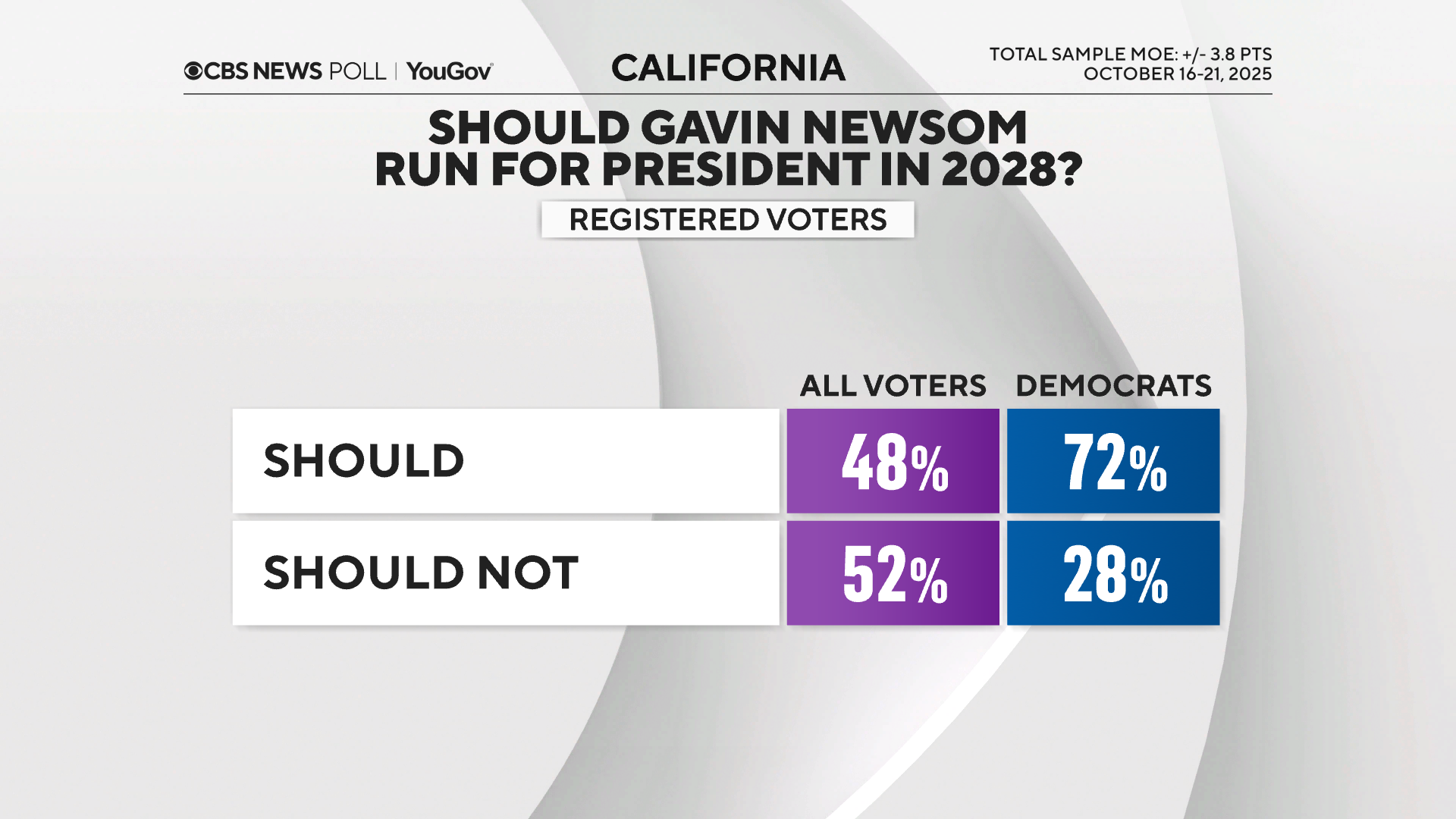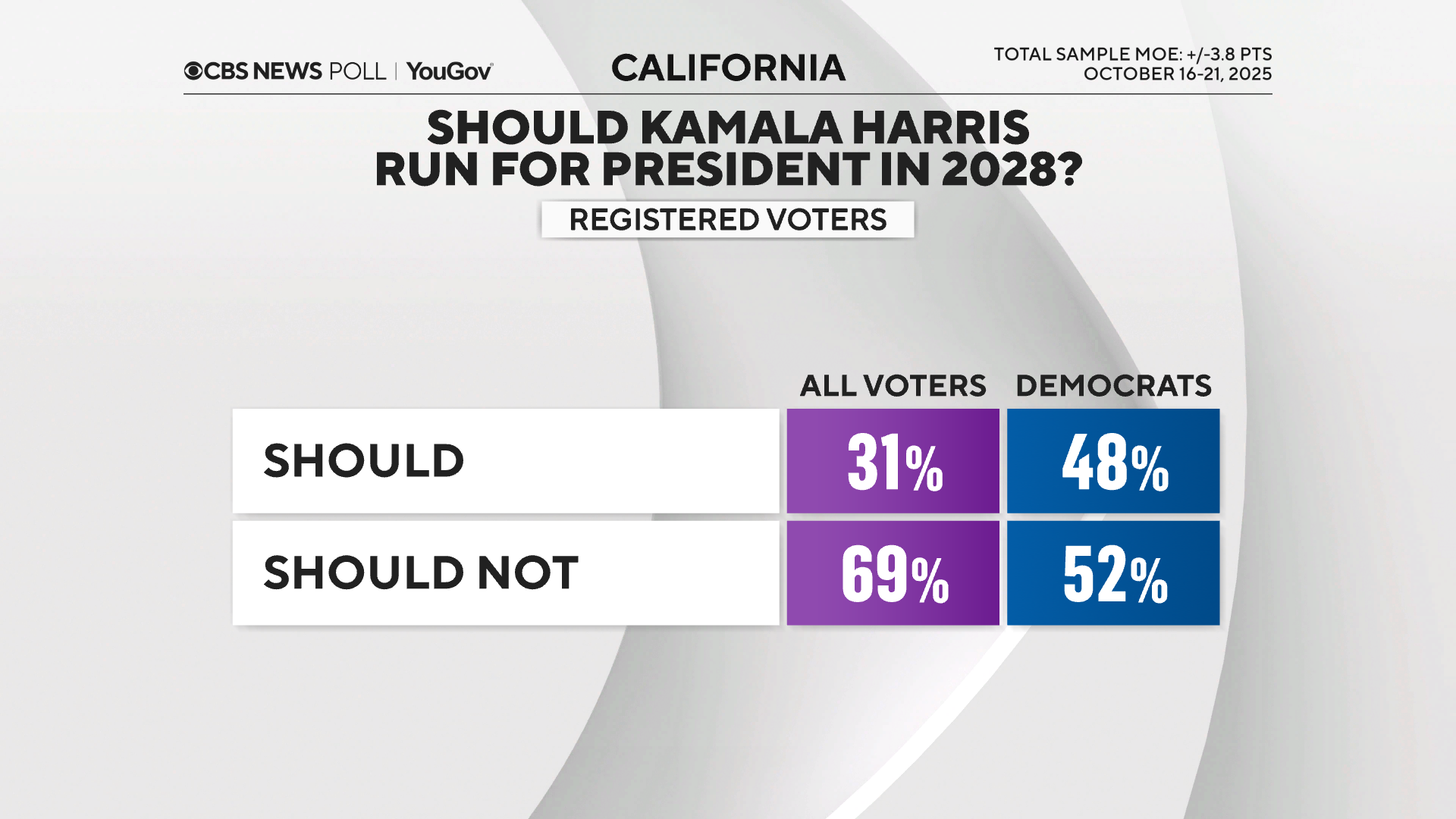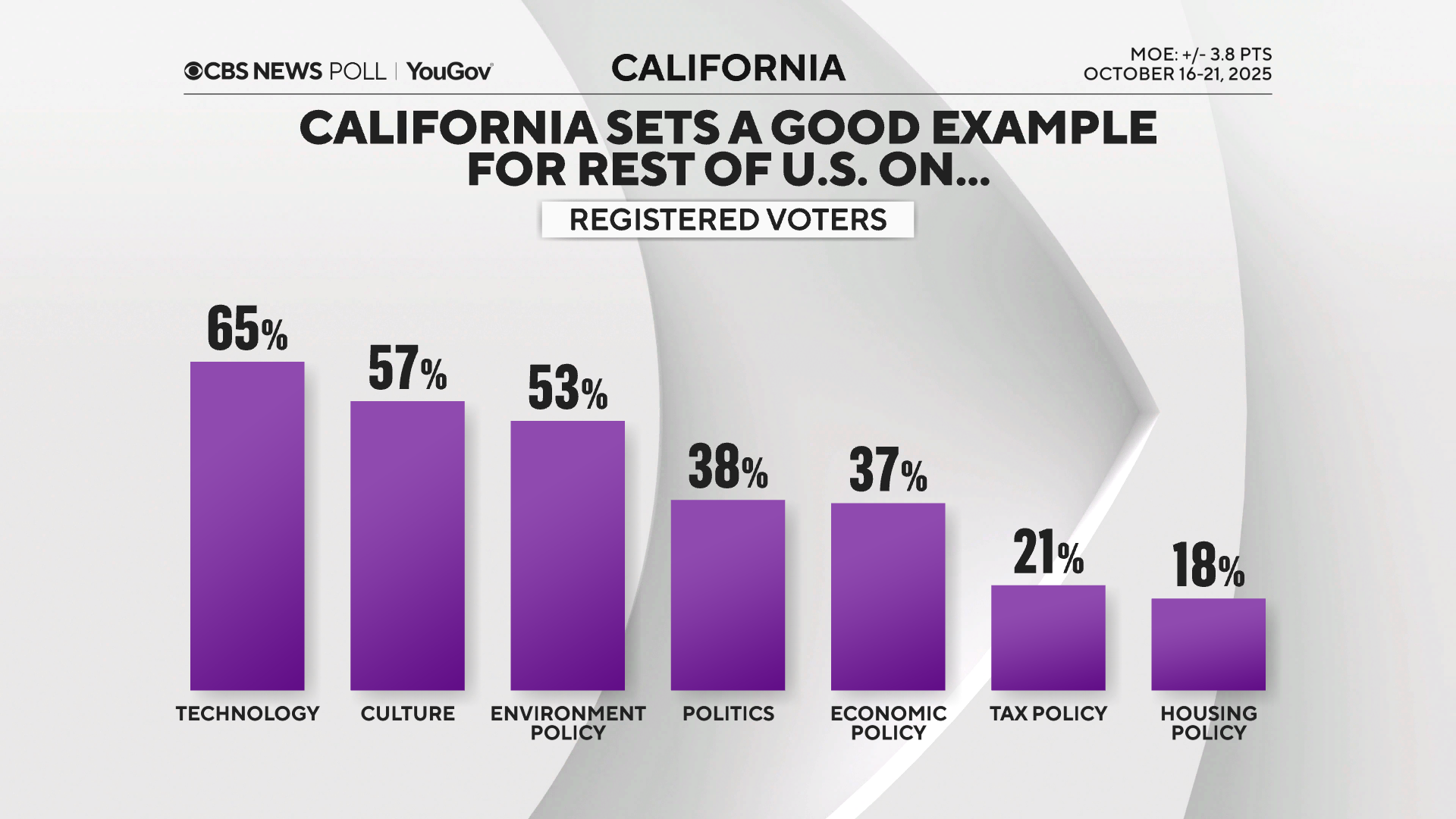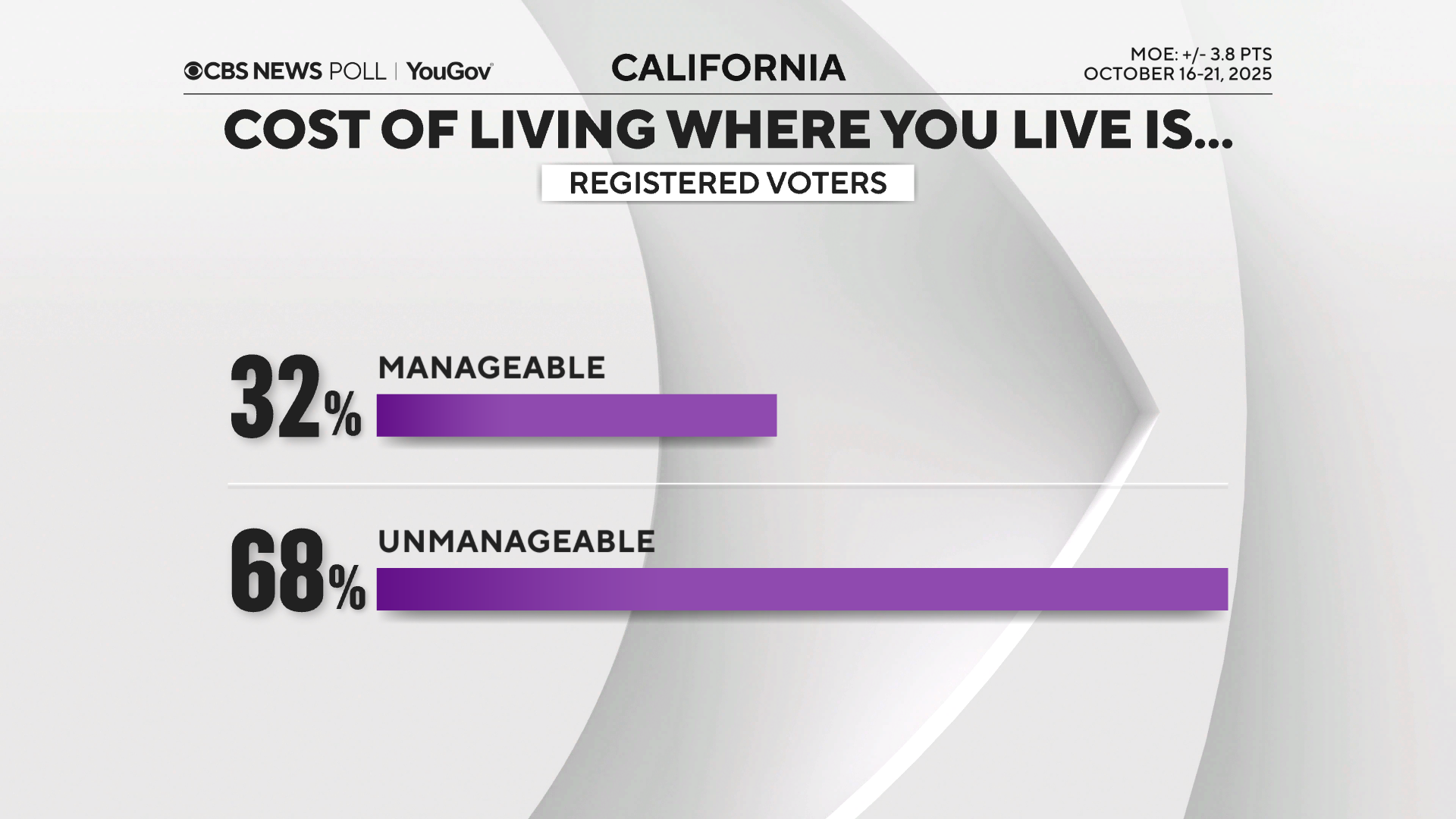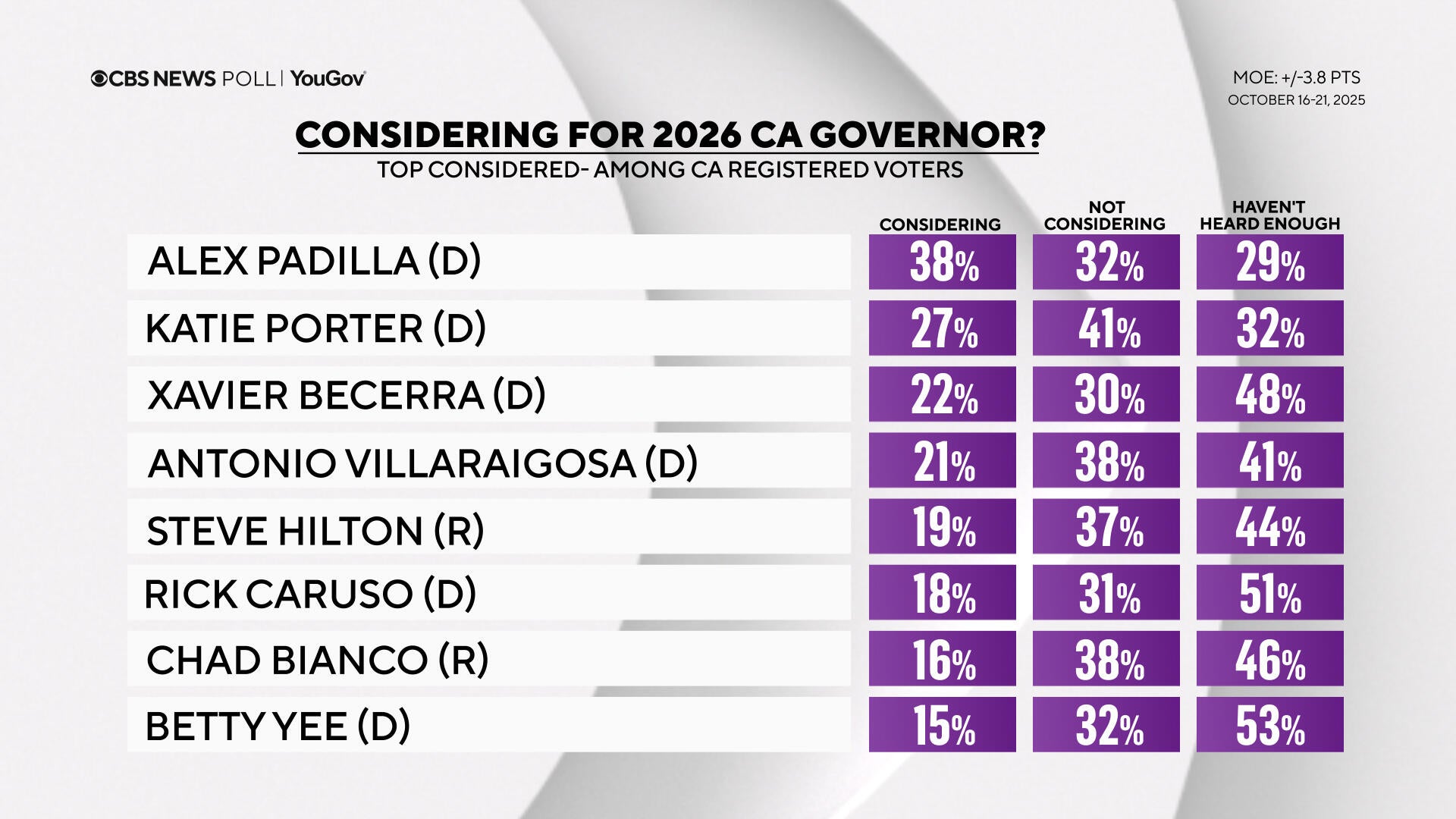As the state draws national attention in part because of Proposition 50 and redistricting, Californians also weigh in on what they think the state more generally can — and can’t — show the nation, and on the potential prospects of some of its leading political figures.
A large number of Californians in his own Democratic Party say Gov. Gavin Newsom should run for president in 2028, but among California’s voters overall, that view is more split.
(Nationally, of course, any entrant on the Democratic side would first need to appeal to the party’s rank-and-file in the primaries across many states. The perspective of home-state voters on an elected official, either in opinions or in state race results, is often taken as a view from the voters who’ve presumably gotten to know their work more closely over the years.)
Newsom’s overall approval rating as governor is positive and a little higher than the percentage who want him to run in 2028.
Given that speculation, California voters tend to think Newsom right now is paying attention to both national and state issues — though fewer feel he is paying mind to their local issues.
By comparison, more California Democrats say Newsom should run in 2028 than say that of former Vice President Kamala Harris, who previously represented California in the Senate.
Fewer than a third of the state’s voters — and just under half of California Democrats — think she should run. She won her home state when she ran in 2024.
Most independents don’t think Newsom or Harris should run, but by comparison, they are much more likely to think Newsom should.
California and the nation: Where does it — and doesn’t — set an example
As Californians are thinking about Prop 50 in national terms, we also wanted to know how they saw the state, relative to the nation on other matters, too.
Californians think the state sets a good example for the rest of the U.S. on technology and innovation, on culture, and for a slight majority, on environmental policy.
But few think it sets a good example on housing policy (most California voters also describe the cost of living in the state more generally as unmanageable), on tax policy, on economic policy or on its politics.
Perhaps related, most Californians — including many with higher incomes — describe the cost of living in the state as either somewhat or very unmanageable.
Against that backdrop, California’s gubernatorial race will take place next year, with the primary also still many months off to establish the top two vote getters for the November 2026 general election.
As with any contest so distant, voters can and do consider multiple candidates or potential entrants, and long before having to make a single choice. That is reflected here. For many voters, they have not heard enough about many.
In all, current Democratic Sen. Alex Padilla of California is the most considered name (though he’s not a candidate, there are reports he may be considering entering the race) and particularly so among Democrats. He’s also won statewide office before and by comparison is best known to voters.
Former Rep. Katie Porter remains slightly more considered than other Democrats besides Padilla, but also has a somewhat higher number saying she’s not being considered.
Also as a part of the early process, there is plenty of cross-consideration. Most of the voters considering Porter are also considering Padilla, and vice versa. Democratic voters are often considering a number of the Democrats running.
The overall number who haven’t heard enough, and who are cross-considering, only emphasizes the point that in the minds of voters that this next-year contest is only just beginning to take shape.
In a state where voters of one party outnumber the other by such a wide margin, one dynamic to watch is who is seen as trying to earn votes or as taking them for granted. Neither party does especially well overall, with Democrats faring a little better than Republicans on being seen as trying to earn votes, but also worse on perceptions of taking votes for granted. A lot of independents are skeptical of both parties, with only about a quarter of them feeling that California’s Democrats or its Republicans try to earn their votes.
This CBS News/YouGov survey was conducted with a representative sample of 1,504 registered voters in California interviewed between October 16-21, 2025. The sample was weighted according to gender, age, race, education, and geographic region based on the voter file and U.S. Census data, as well as to 2024 presidential vote. The margin of error is ± 3.8 points for registered voters and ± 3.6 points for likely voters.

